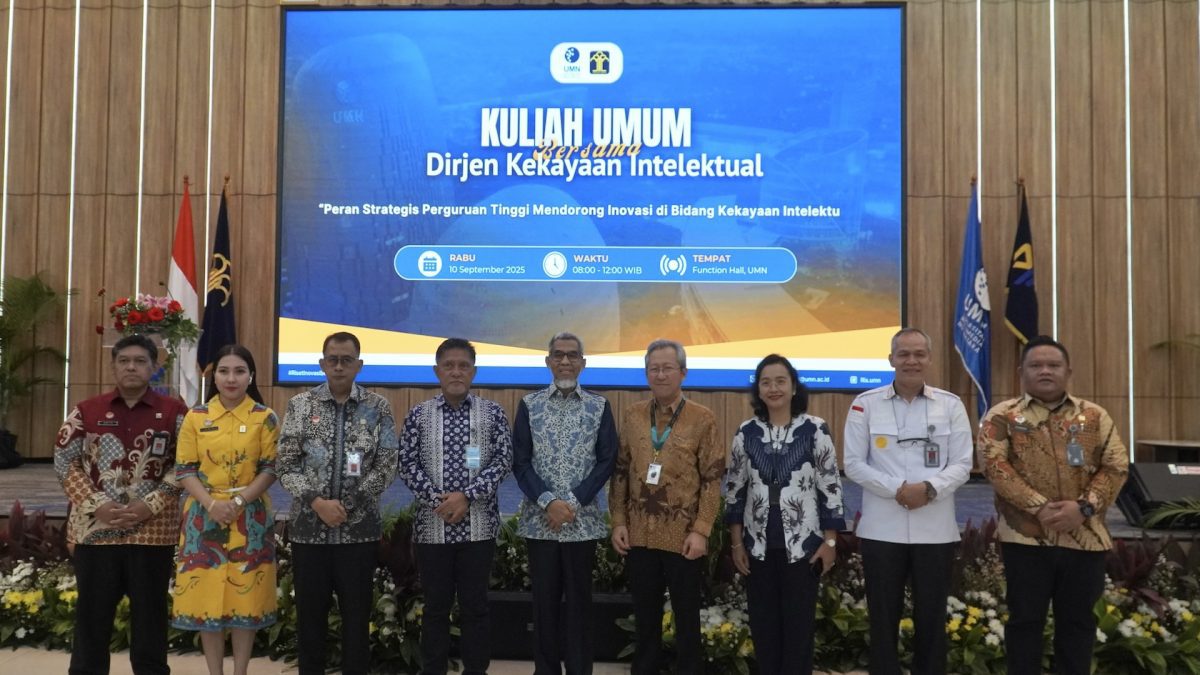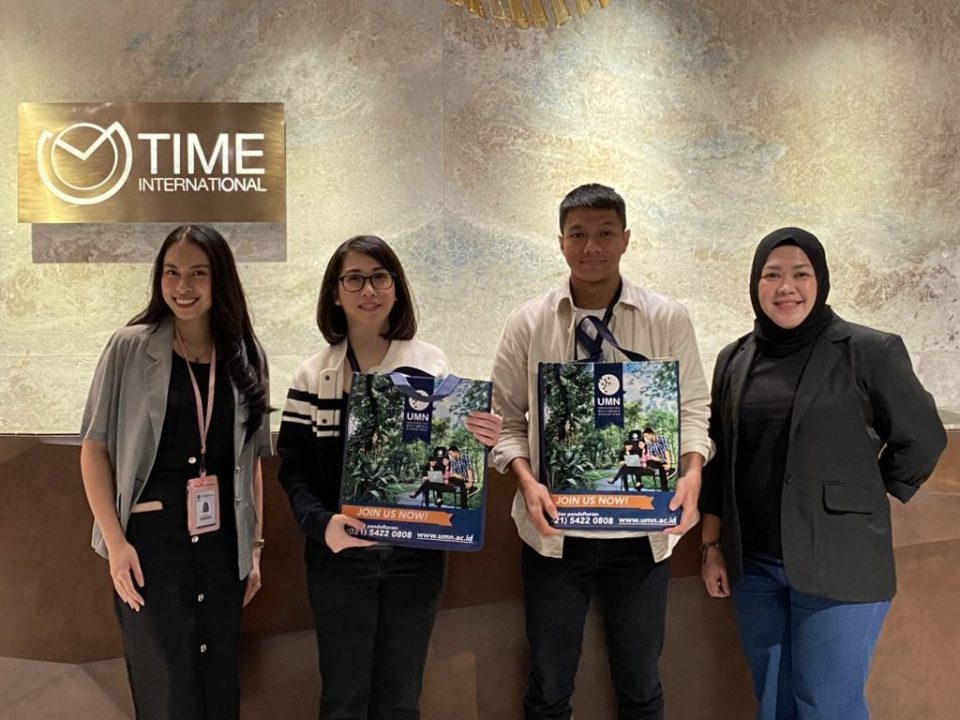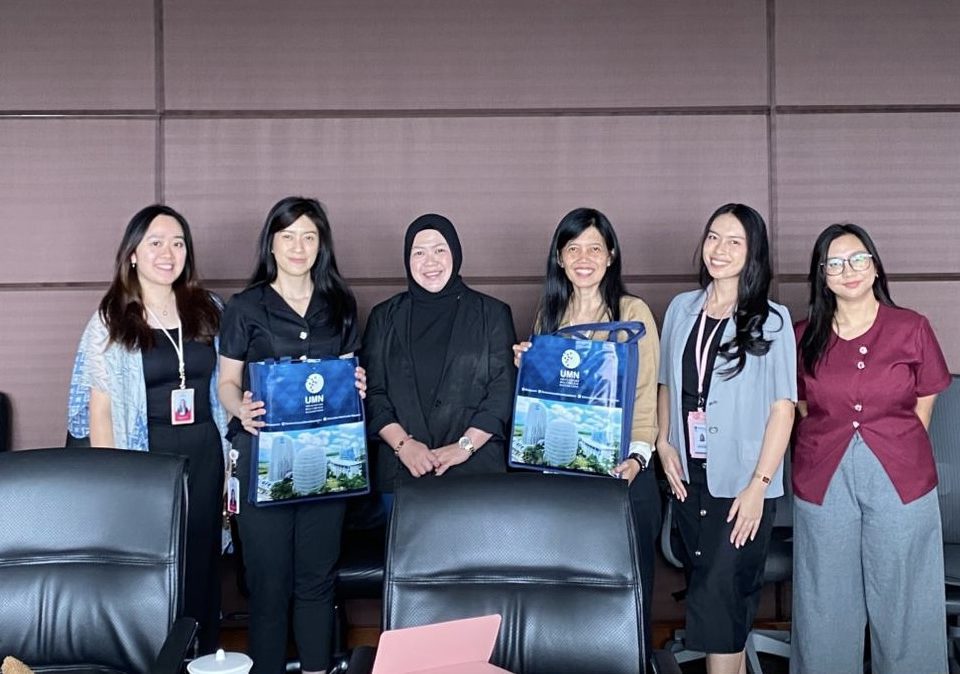
Amid Economic Turbulence, Let’s Hone Our Skills to Compete in The Digital Age
September 12, 2025
CIC 2025: Promoting Academic Collaboration and AI-Based Innovation for a Sustainable Future
September 12, 2025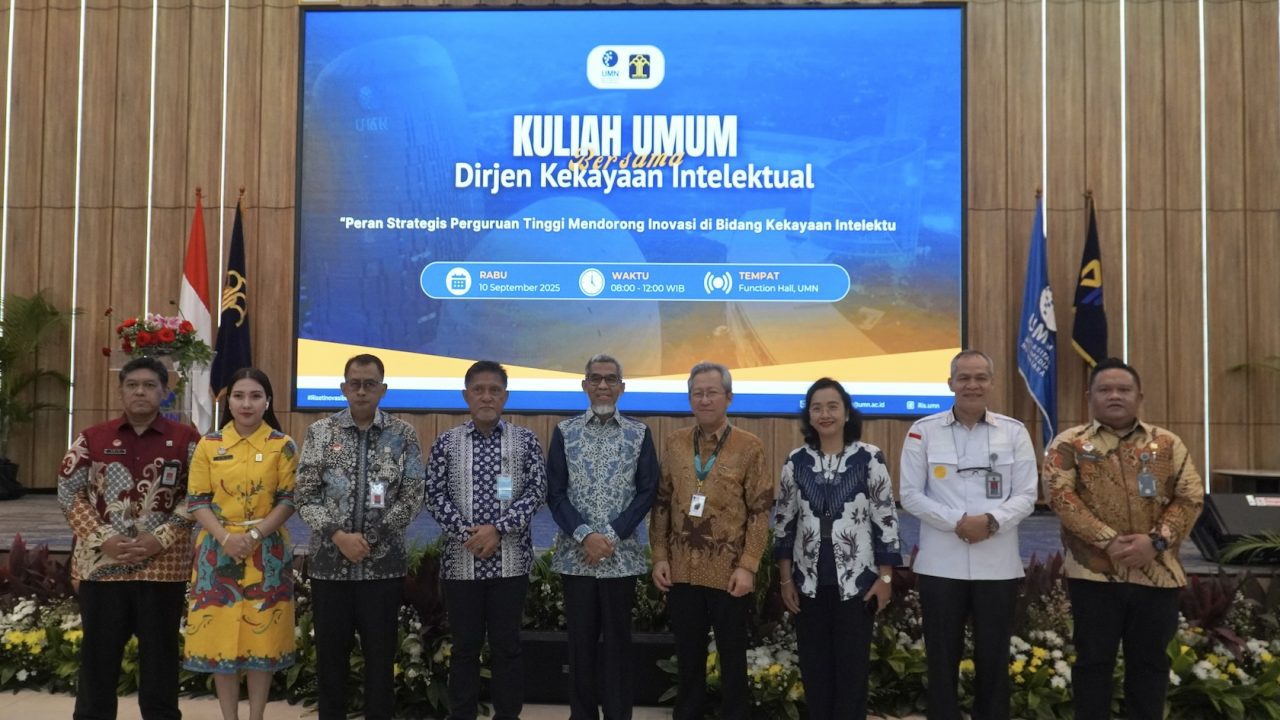
Group photo of UMN and the Directorate General of Intellectual Property of the Indonesian Ministry of Law. (Doc. UMN)
Tangerang – On Wednesday (10/09/2025), Universitas Multimedia Nusantara held a guest lecture with the Director General of Intellectual Property, Ministry of Law of the Republic of Indonesia, discussing “The Strategic Role of Higher Education in Promoting Innovation in the Field of Intellectual Property.” This guest lecture was held at the Function Hall, UMN Campus. The UMN Research and Innovation Department organized this activity with the Banten Regional Office of the Ministry of Law. The event also included the inauguration of a collaboration between UMN and the Directorate General of Intellectual Property of the Ministry of Law of the Republic of Indonesia.
“This guest lecture is a strategic step to educate students and promote knowledge about Intellectual Property Rights. Intellectual Property Rights are regulated by law and form a synergy with universities. In my opinion, universities have great potential in Intellectual Property Rights, considering that universities are hotbeds of creativity and innovation,” Dr. Pagar Butar Butar, S.H., M.Si., Head of the Banten Regional Office of the Ministry of Law, said.
Pagar emphasized that the Ministry of Law intended this activity to be the implementer of intellectual property. Higher education institutions are important stakeholders. Pagar emphasized that all academic community members have the right to their creativity, whether in the form of works, articles, final projects, or other works.
“Intellectual Property Rights are important, and this is a concern for UMN because creative works must be protected. Nowadays, the use of Artificial Intelligence (AI) is increasingly widespread, and many works are created by AI. With the advancement of technology, we should not be afraid of being replaced by AI, but we must have capabilities beyond AI. With these capabilities, we will not only produce creative graduates but also graduates with critical and analytical thinking,” said Dr. Andrey Andoko, Rector of UMN, in his opening remarks.
Andrey emphasized that intellectual property rights are very important so that innovation does not stop, but can continue downstreaming. In addition, Andrey stressed that intellectual property rights not only give exclusive rights to the creator but also function as an economic driver.
“The theme raised today is very relevant to the challenges we are facing now. Creativity and innovation are the nation’s competitive advantages. Currently, universities are places where new works are created, but these works cannot be optimized without intellectual property rights. In addition, they also have economic value for their creators and support Indonesia,” Dr. Nofli, Bc. IP., S.Sos., SH, M.Si., Deputy for Legal Coordination, Coordinating Ministry for Political, Legal and Security Affairs of the Republic of Indonesia, said.
Nofli hopes that more universities will pay attention to intellectual property rights for lecturers’ and students’ works. For Nofli, intellectual property rights must be optimized and integrated into university learning, and intellectual property rights are also a form of appreciation for the academic community.
On this occasion, UMN also inaugurated a collaboration with the Directorate General of Intellectual Property of the Ministry of Law of the Republic of Indonesia. This collaboration will be a strategic step for UMN to strengthen the Tri Dharma of Higher Education collaboration and the protection and utilization of intellectual property.
Guest lecture session with the Directorate General of Intellectual Property of the Ministry of Law of the Republic of Indonesia
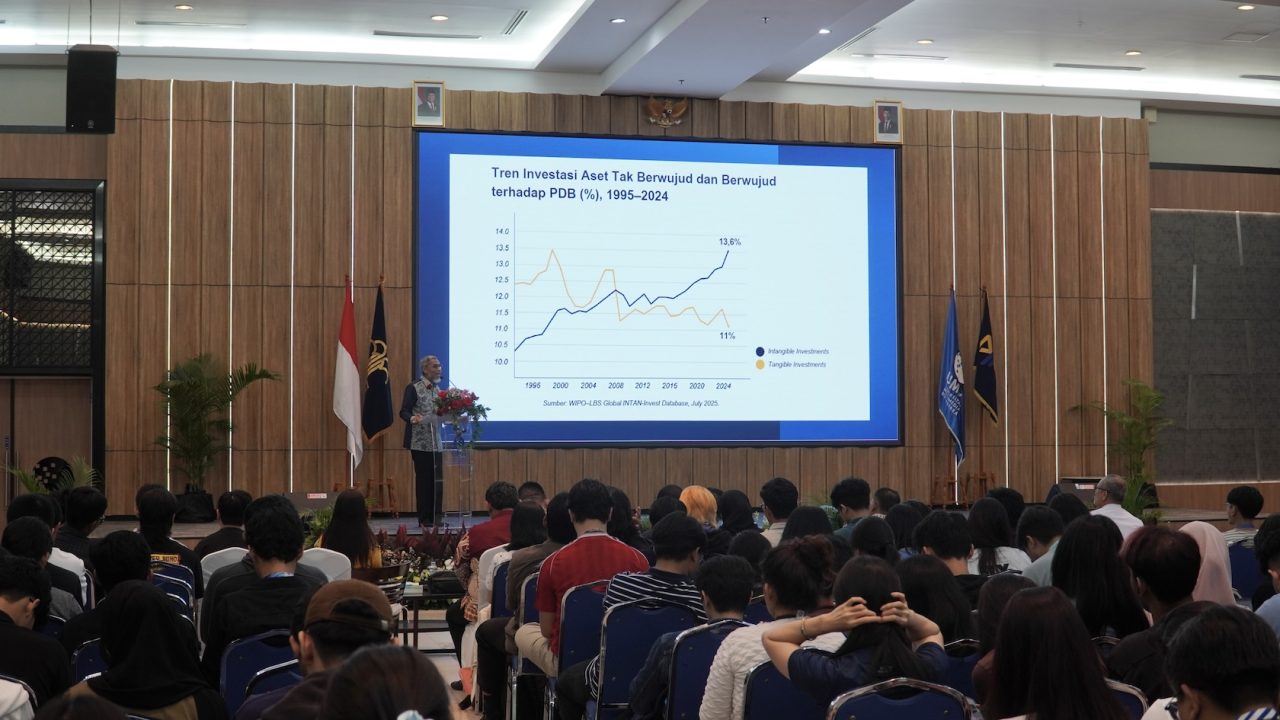
Guest Lecture Session attended by UMN students. (Doc. UMN)
Razilu, M.Si., CGCAE. presented this public lecture, Director General of Intellectual Property, Ministry of Law and Human Rights of the Republic of Indonesia, and Agung Damarsasongko, S.H., M.H., Director of Copyright and Industrial Design, Ministry of Law of the Republic of Indonesia. They discussed intellectual property rights in Indonesia in depth and provided new perspectives, especially for universities.
“Intellectual Property Rights are the backbone of work, yet many people still do not pay attention to the importance of IPR. IPR is an intangible investment, seemingly trivial but an important part of work. Data in Indonesia shows that the average number of intellectual property applications from 2015 to 2025 grew by 18.5% or 1,782,573,” Razilu said.
Razilu also emphasized that more and more Indonesians are applying for intellectual property rights for books, written works, computer programs, video recordings, and photographs. For Razilu, intellectual property refers to the results of creative human thought.
“Universities are a breeding ground for ideas and creativity, producing many designs, literary works, and research that will be important to have intellectual property rights for in the future. Intellectual property rights are not obtained by the first person to create something, but by the first person to register it, so that the intellectual property registrant has freedom in their work,” Razilu said.
Razilu concluded that intellectual property is a human creative idea that has the potential to become a commercial asset, and ideas are the seeds of intellectual wealth that must be nurtured and protected to grow into valuable assets. This guest lecture was continued by the second speaker, Agung Damarsasongko, S.H., M.H.
“Given the current technological advances, intellectual property rights have become very important. AI technology is a clear example that it is possible for works to be taken, and there have been many cases of this. So, besides being careful with the use of AI, we must also be aware of the intellectual property rights of our work,” Agung said.
Agung also explained that taking or being inspired by a work is not prohibited, but it is essential to cite the source. Agung emphasized that not citing the source constitutes plagiarism.
“UMN is one of the universities with enormous copyright potential, considering the many works produced by students and lecturers. Copyright is not only an exclusive right but also includes moral rights and economic rights. There are many types of intellectual property rights, even derivative ideas are included, for example, a film made from a book still has intellectual property rights,” Agung explained.
By Rachel Tiffany | UMN News Service
English translation by Levina Chrestella Theodora
Kuliah di Jakarta untuk jurusan program studi Informatika| Sistem Informasi | Teknik Komputer | Teknik Elektro | Teknik Fisika | Akuntansi | Manajemen| Komunikasi Strategis | Jurnalistik | Desain Komunikasi Visual | Film dan Animasi | Arsitektur | D3 Perhotelan , di Universitas Multimedia Nusantara.

